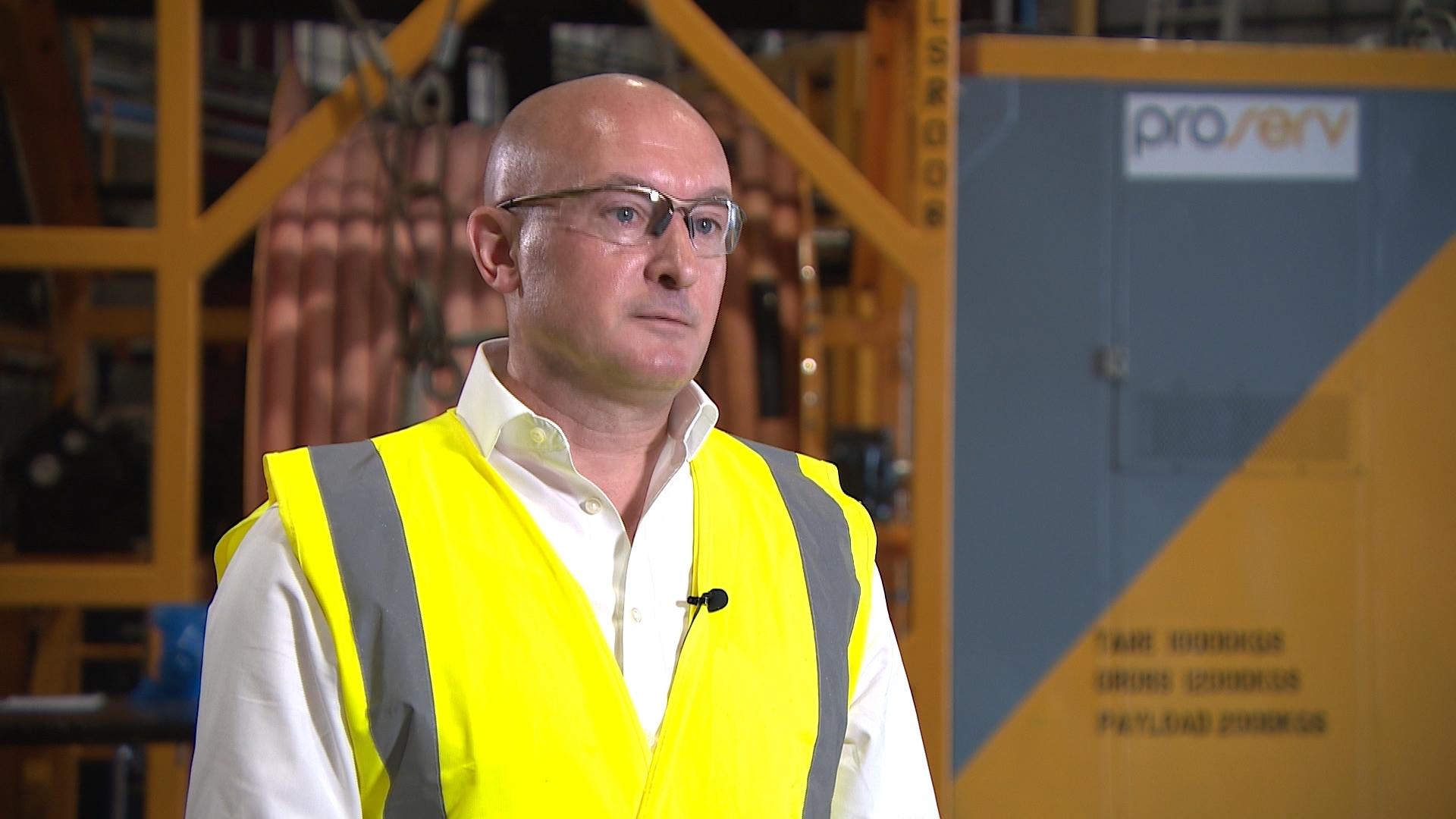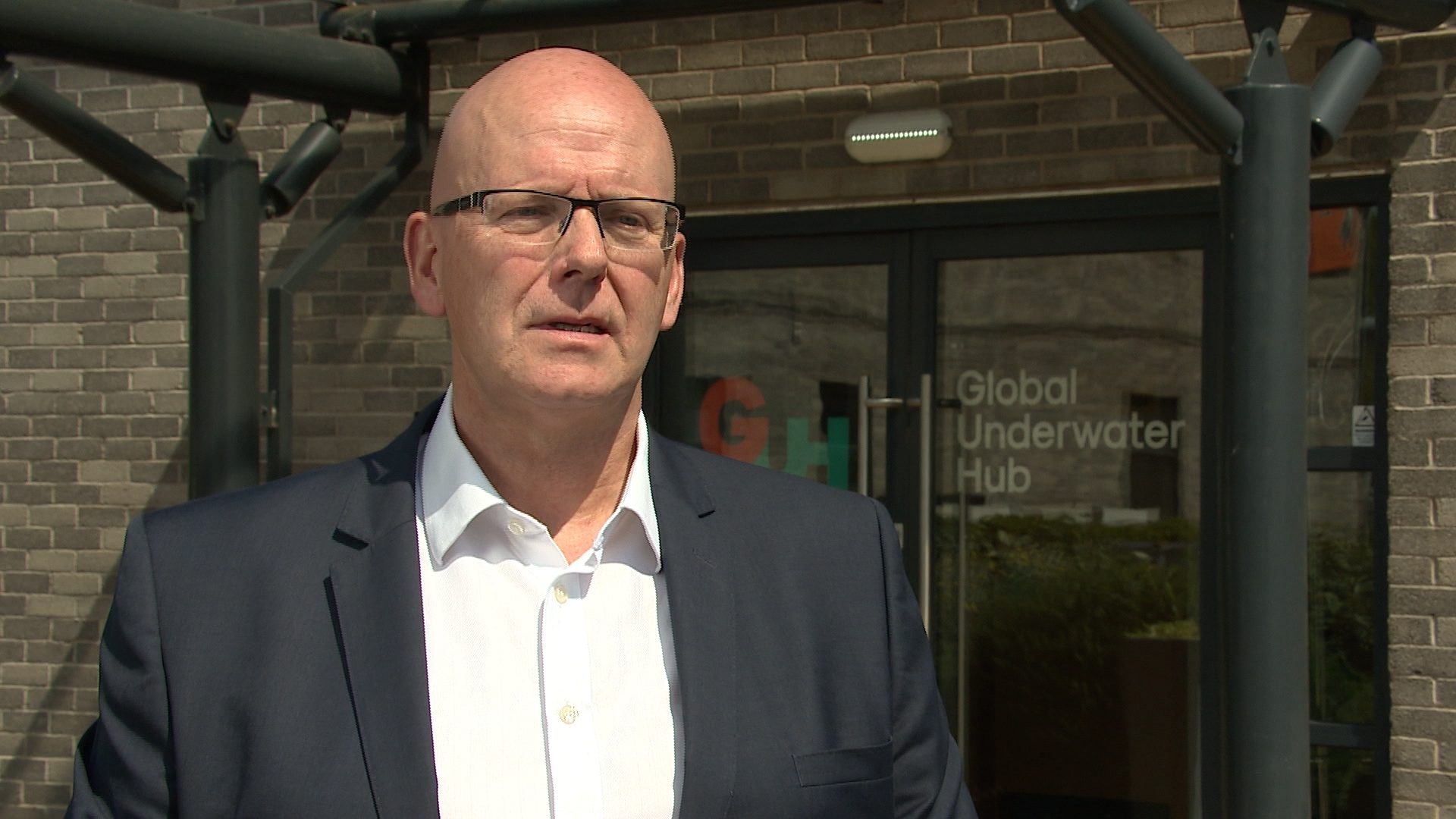Energy firms have warned that businesses could leave Scotland due to financial and political uncertainty surrounding the North Sea.
One firm has said that many companies are questioning if they can stay in the UK as the North Sea becomes less viable through increased taxes and political decisions.
System control firm Proserv’s chief executive, Davis Larssen, has echoed a sentiment which many in the oil and gas industry have warned about for some time.
The Aberdeen-based business is seeing an increasing amount of its work head overseas.
The claim is backed by an industry body that says the gap between the work in oil and gas and renewables is too large, and many are looking to leave the UK for other markets around the world, which will cost jobs.
“The reality is 80% of our business is not in Aberdeen, so that does provoke a challenge,” Mr Larssen told STV News.
“I spend a lot of time on planes, like a lot of people in my position do, going to the energy basins where clients want to see you because they are investing money in maintaining and developing infrastructure, and the North Sea is almost exactly the opposite of that.”
A recent survey by the industry body OEUK found 90% of firms asked said they “see more attractive opportunities to grow their business overseas due to uncertainty and a less positive business environment at home”.
The blame from a lot of companies in the sector is both on the windfall tax and the political decision to not grant new drilling licences in the North Sea in the future.
Mr Larssen added: “I put the blame firmly on the Government and in terms of the political positions they’ve made, which has created this whole environment of uncertainty in the UK.
“People don’t want to invest any money, and they are pulling resources away and funds away to invest in other energy basins around the world.”
 STV News
STV NewsA number of companies have already cut jobs or decided they will be pulling out of the North Sea because of political decisions.
Harbour Energy recently announced 250 jobs would be cut on top of 350 it axed in 2023 when it blamed the windfall tax.
Apache said it would be ending its production in the region in the next few years; it too blamed the tax.
The UK Government says the windfall tax is “a temporary measure which is helping fund public services”.
It has also launched a consultation on the future tax regime in the North Sea.
The UK and Scottish governments have also pointed to the transition from oil and gas to renewables as a way of keeping companies in the UK and creating and retaining jobs.
However, the industry body, Global Underwater Hub which represents mainly those in the subsea sector says there isn’t enough work yet in renewables to sustain many firms.
Its chief executive, Neil Gordon, said: “I think the transition will take a lot longer than ever anticipated and many people will talk that it will take years, many years and decades before we get a transition.
“The risk of job losses are absolutely here and now, we are hearing companies starting to review and look at what they see on their order books, when they start looking further ahead, just over the horizon then it starts giving cause for concern.”
 STV News
STV NewsMany companies in the UK are now looking at other regions, including West Africa, South America and Australia for work.
However, experts say the shift away from the UK has been ongoing for more than a decade now.
Dr Ollie Folayan is co-founder of the Association for Black and Minority Ethnic Engineers. He said: “In 2014, when we had the downturn, there was a large number of people who effectively became global citizens in many ways.
“They took some of their skills and, in some cases, set up businesses in Africa, started to do work more in Africa, but they are very much based here.
“So that started back almost 11 years ago, that is only going to get bigger, and that’s only continuing.”
A recent survey by Aberdeen & Grampian Chamber of Commerce showed that of the 100 firms they asked, around two-thirds expected to increase headcount overseas in the next five years.
Almost half said staff had already left the UK to work in other energy regions, and many believed most of their work would be overseas by 2030.
A UK Government spokesperson said: “We are making the North East of Scotland the home of the UK’s clean energy revolution, backed by £8.3bn for Aberdeen’s Great British Energy and up to £200m for the Acorn carbon capture scheme centred on St Fergus, which is safeguarding 18,000 North Sea jobs, whilst creating 15,000 new clean energy jobs.”
Follow STV News on WhatsApp
Scan the QR code on your mobile device for all the latest news from around the country




























